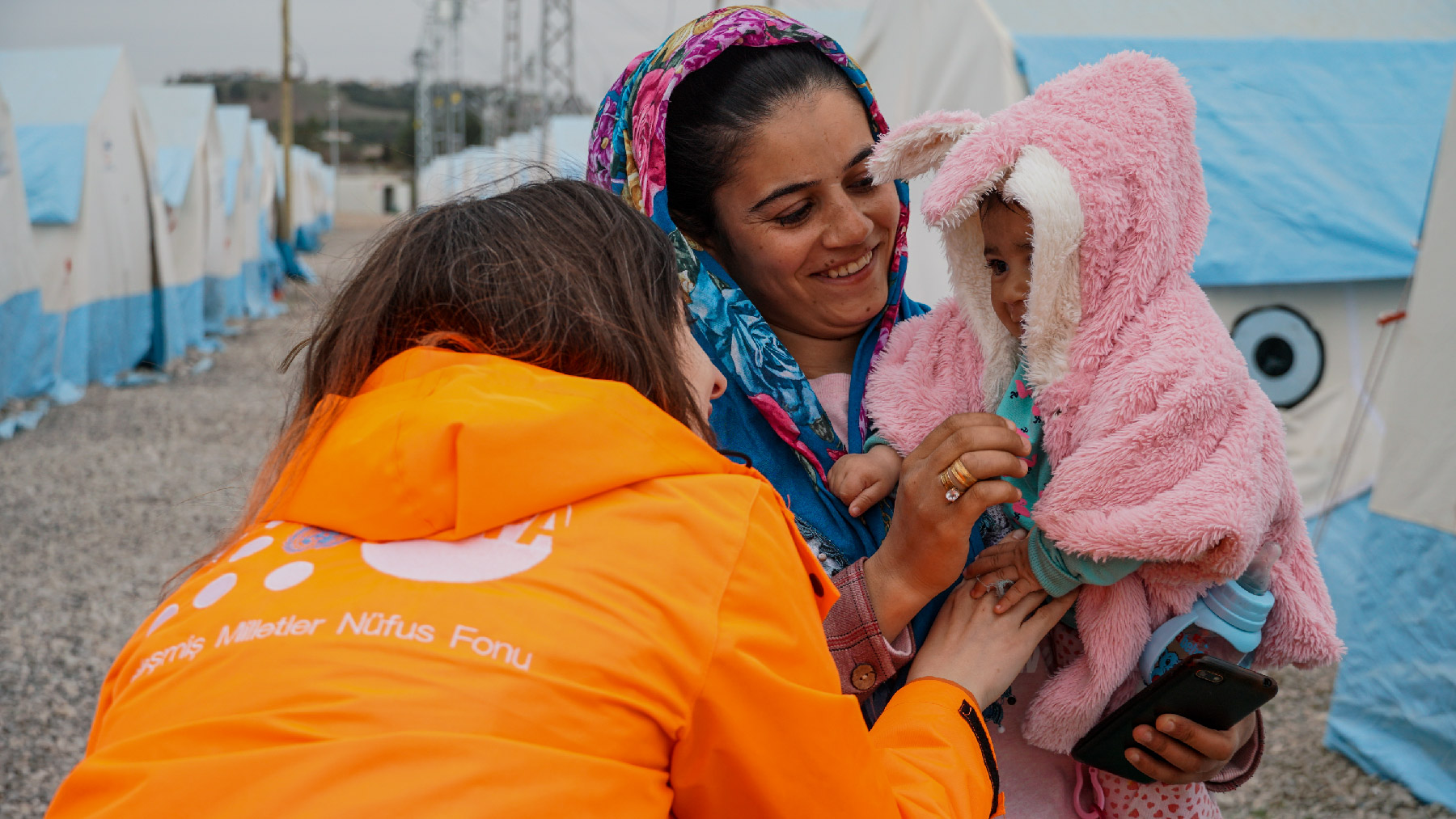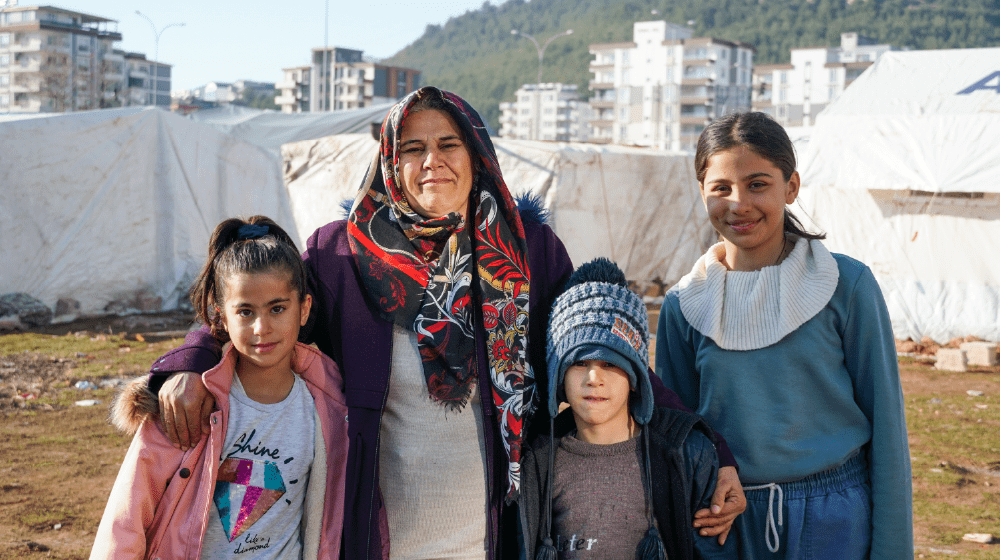“We waited in desperation while thinking that the earthquake would never end and the house would collapse on our heads.”
“We ran out barefoot, our babies didn't even have a blanket. There were times I couldn’t even find a diaper and had to use napkins."
“It is vital not to have to worry about our basic hygiene needs at least.”
These words belong to three people of the millions directly affected by the earthquakes, hit Türkiye on February 6. It has been 4 months since the earthquakes shook the whole of Türkiye deeply and caused tens of thousands of people to lose their lives and millions of people to lose their loved ones and homes. More than 9 million people in 11 provinces were directly affected. Half of them are women and girls. In addition to basic needs such as shelter, cleaning, food and water, women and girls also have specialized needs.
As UNFPA, we have been on the ground since day one to meet the health and protection needs of women and girls. We have met hundreds of women affected by the earthquakes in the field. We have witnessed their indescribable pain. We've heard stories that are impossible to forget. We have been trying to give support so that they could heal their wounds even in a minor way. Yasmin, Lale, Hatice and Yonca... Just a few of those women. Let's hear out their experiences, needs, and expectations directly from them.
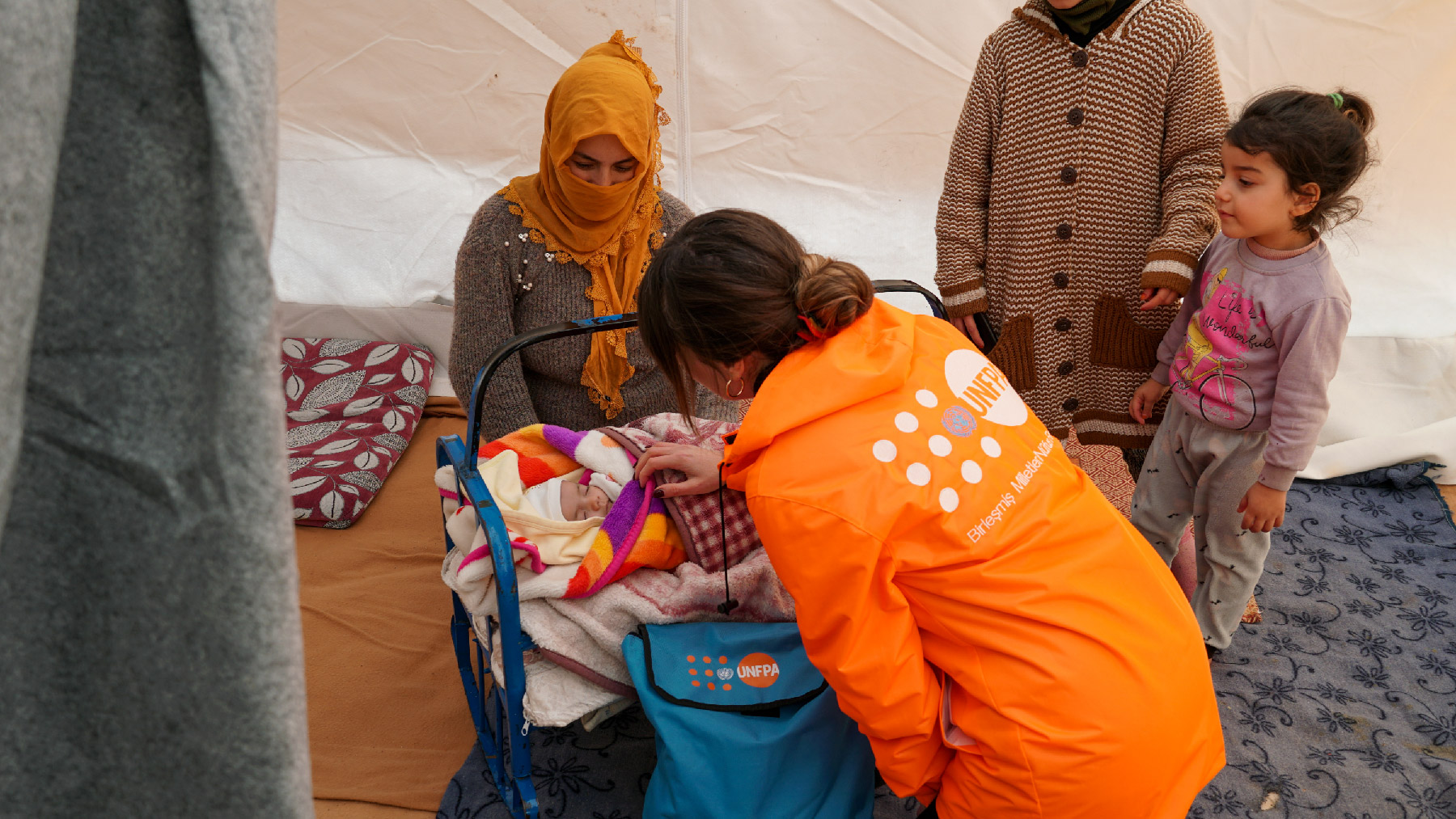
Ziynet's baby was only 40 days old when the earthquake happened. They took shelter in a tent city in Diyarbakir, without taking any belongings from their damaged house. “I have 8 children. My baby was just born. We could not take any needs of our children with us,” says Ziynet, while describing their living conditions as difficult as the trauma they experienced. While trying to establish a new order, we gave Ziynet UNFPA’s dignity and maternal health kits to support at least the hygiene and the basic healthcare needs of her and her newborn baby.
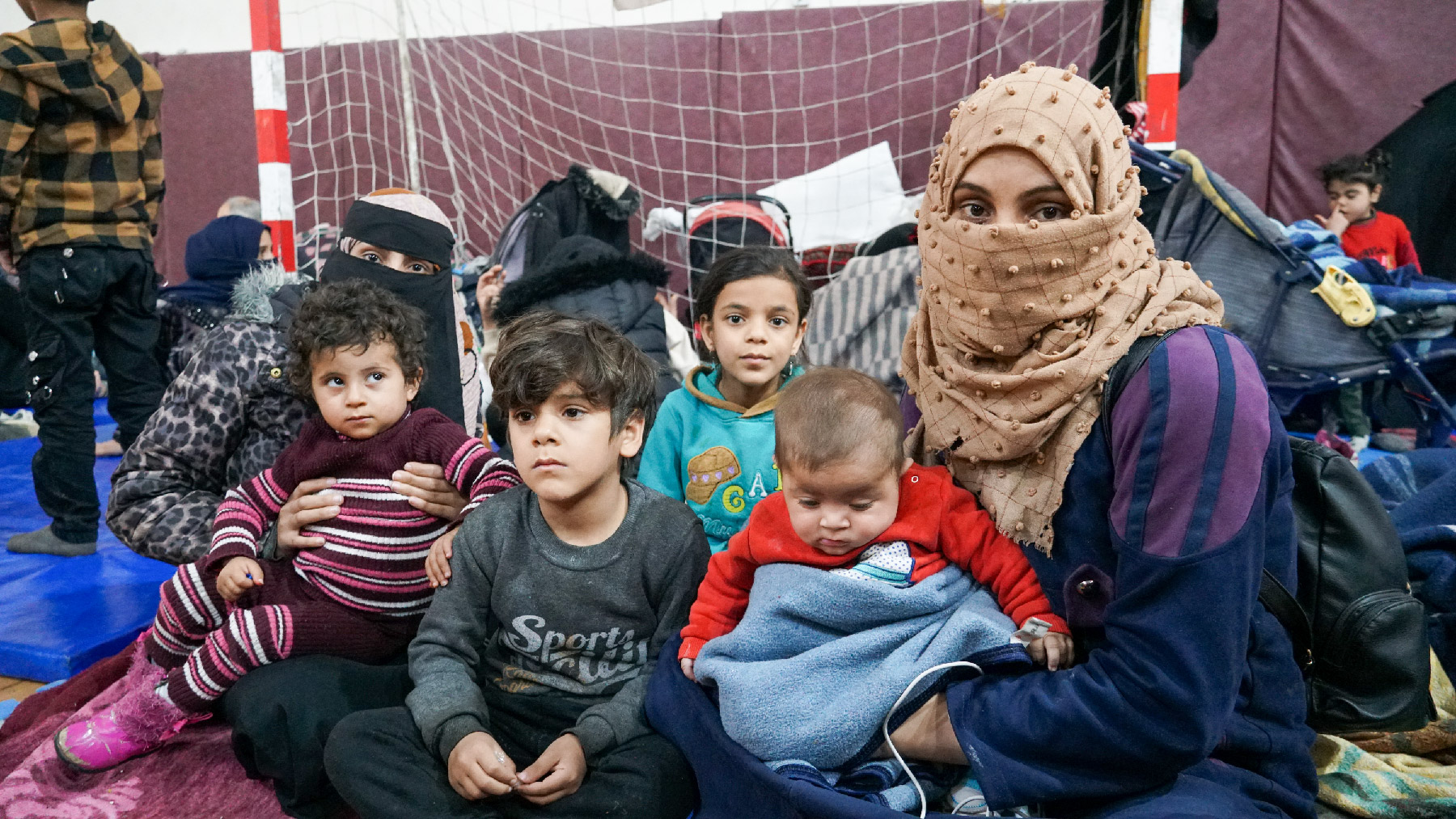
Yasmin, the mother of 5, had filed a divorce case against her husband before the earthquake, by obtaining a restraining and protection order due to the risk of violence with the support of UNFPA. Given her house was damaged in the earthquake, she had to take shelter in her husband’s house with her children. However, the violence and threats did not stop, and the fear of her safety was added to the fear of the earthquakes. Yasmin, who was placed in a safe space with the support of UNFPA, said, “We had to escape both from the earthquake and from my husband. Thank God, he doesn't know we're here now. I know I am safe here.”
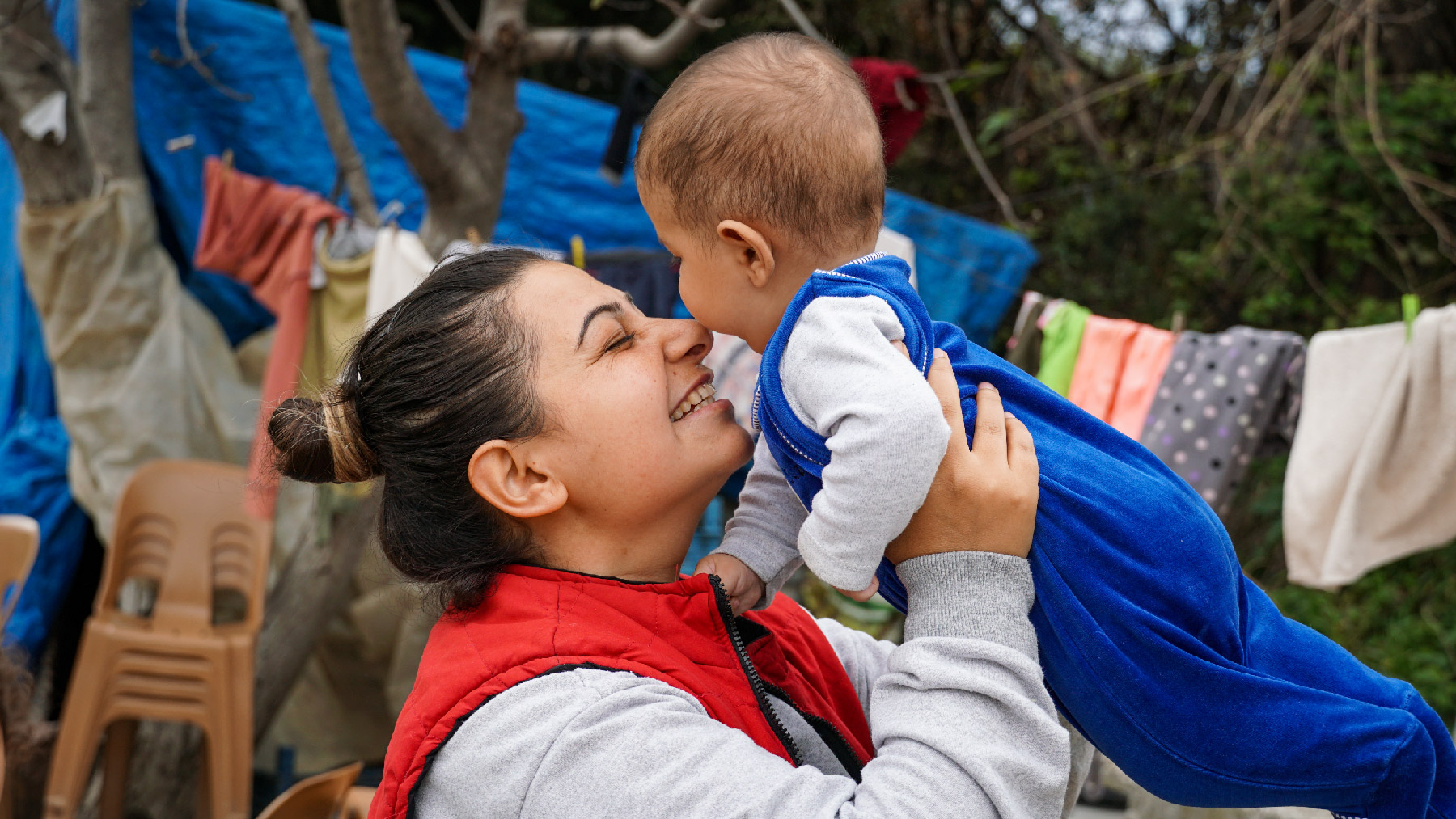
Sinem tried and waited for 7 years to hold her baby Naim in her arms. Unfortunately, her dreams about her baby and everything she planned to provide him after this long wait were interrupted by the earthquakes. We visited the tent city where they stayed near their damaged house, Sinem told us about her broken dreams; “We have waited so many years to meet him. We dreamed about everything we could provide for him; clothes, toys, but we couldn't do any of them.” However, we managed to create a smile on her face with the UNFPA maternal health kit when she saw the newborn products in it.
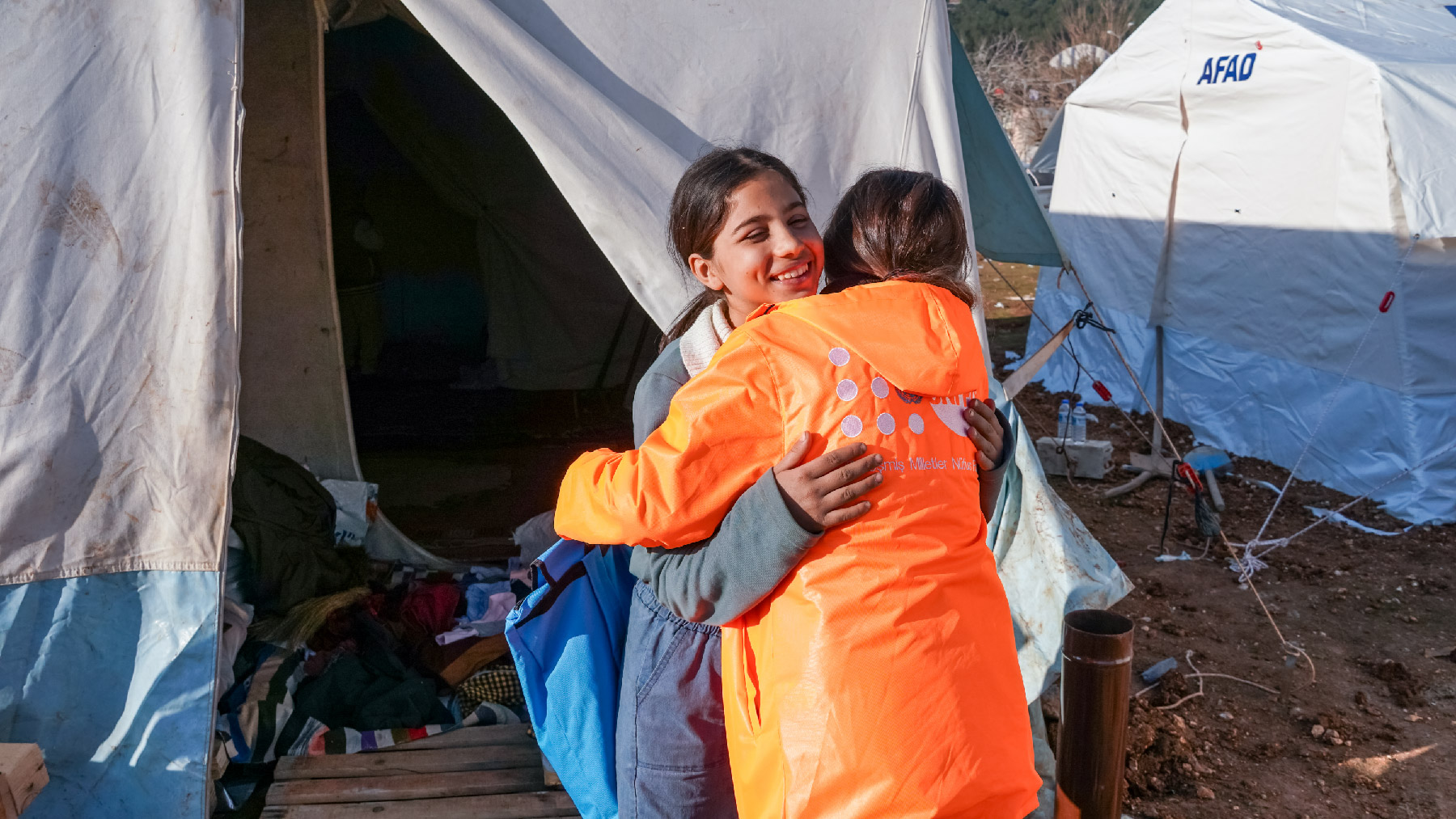
11-year-old Ela was caught in the earthquake with her family in Adıyaman. Both her home and school were damaged. Even though she had to take a break from her education for a while while living in a tent city in harsh conditions, she continues to smile and dream. One day she will become a very successful doctor. We supported Ela's basic self-care needs such as soap, shampoo, toothpaste, toothbrush, underwear, and menstrual hygiene pads with our dignity kit.
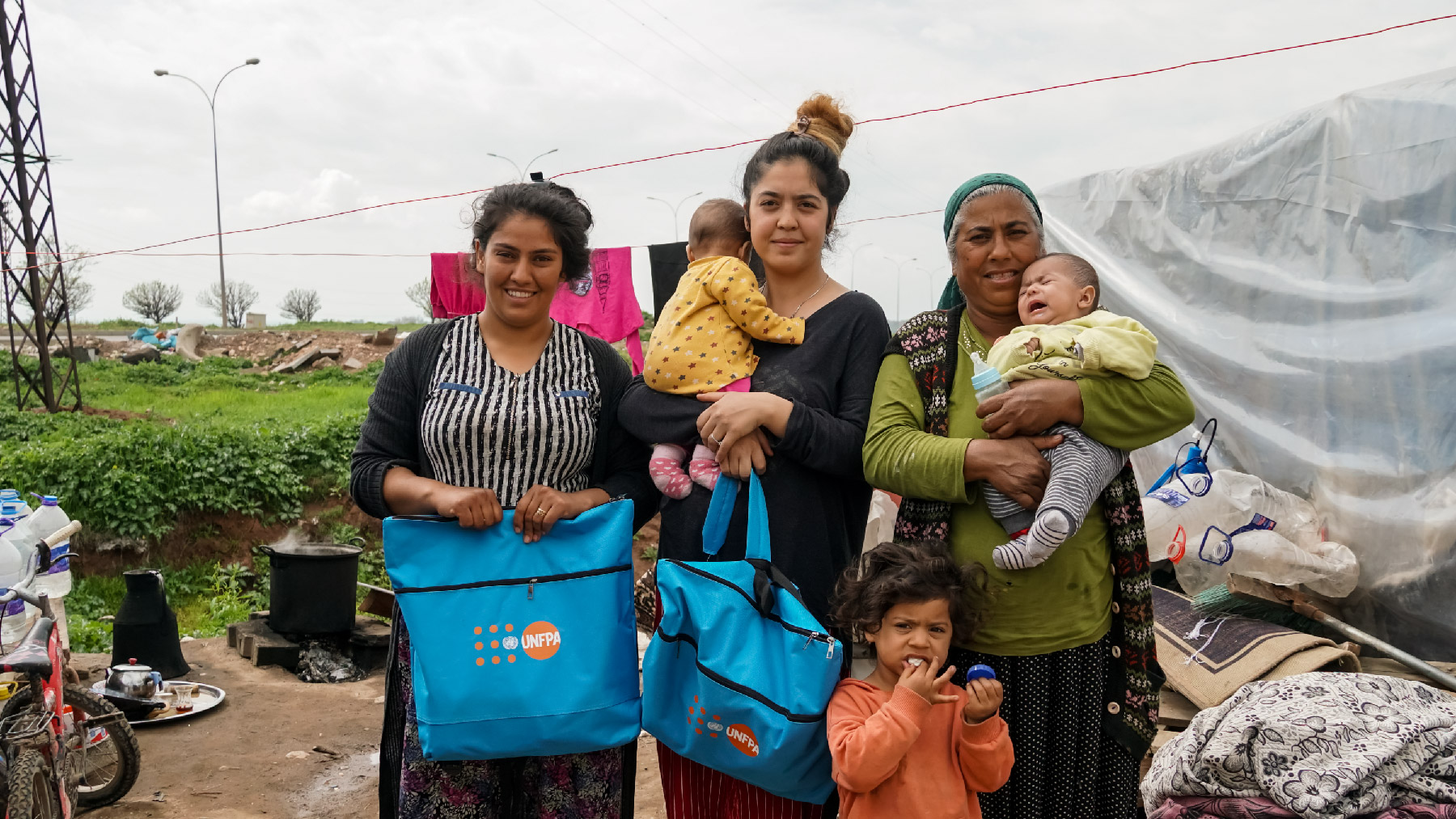
Lale, the mother of 6-month-old twins, was left in the rain with her babies for a few days after she left their home barefoot due to the earthquake. Now she lives with her husband's family in a tent they set up with their efforts. She explains what she’s been through with the following words; “We couldn't even get our babies' blankets. I couldn't find a formula for my babies, so I had to add sugar to the water and give it to them. Sometimes I couldn’t even find a diaper, and had to use napkins.” With UNFPA maternal health kits, at least they don't have to worry about the basic care and hygiene needs of their babies and themselves.
Pregnancies do not stop during earthquakes, and neither do births
There are almost 2.4 million women of reproductive age in the population affected by the earthquakes, including approximately 130,000 pregnant women. In the first month after the earthquake, approximately 25 thousand births took place in the region. Access to antenatal and postnatal care and safe delivery services is vital for both mothers and their babies.
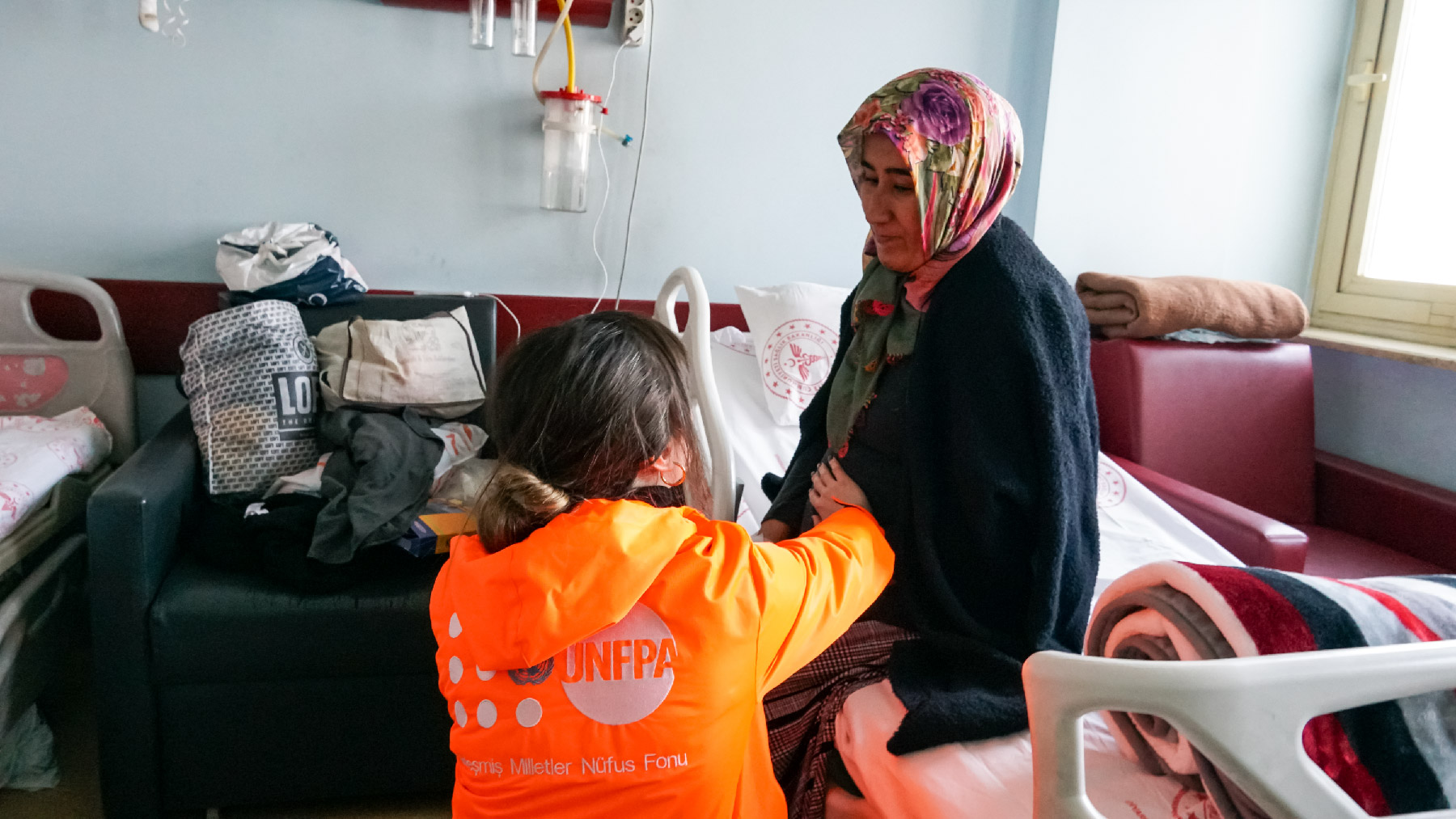
Kevser was 8 months pregnant when the earthquake hit. Her mother pulled her out of the rubbles of her house in Adıyaman with her bare hands. Kevser and her baby were healthy, but very sadly her 2-year-old daughter died. The fear, trauma, and pain she experienced were indescribable. We visited Kevser at the Maternity Hospital in Diyarbakır. With our maternal health kit, we tried to support her basic healthcare needs and promised to continue to be there for her so that we could heal together.
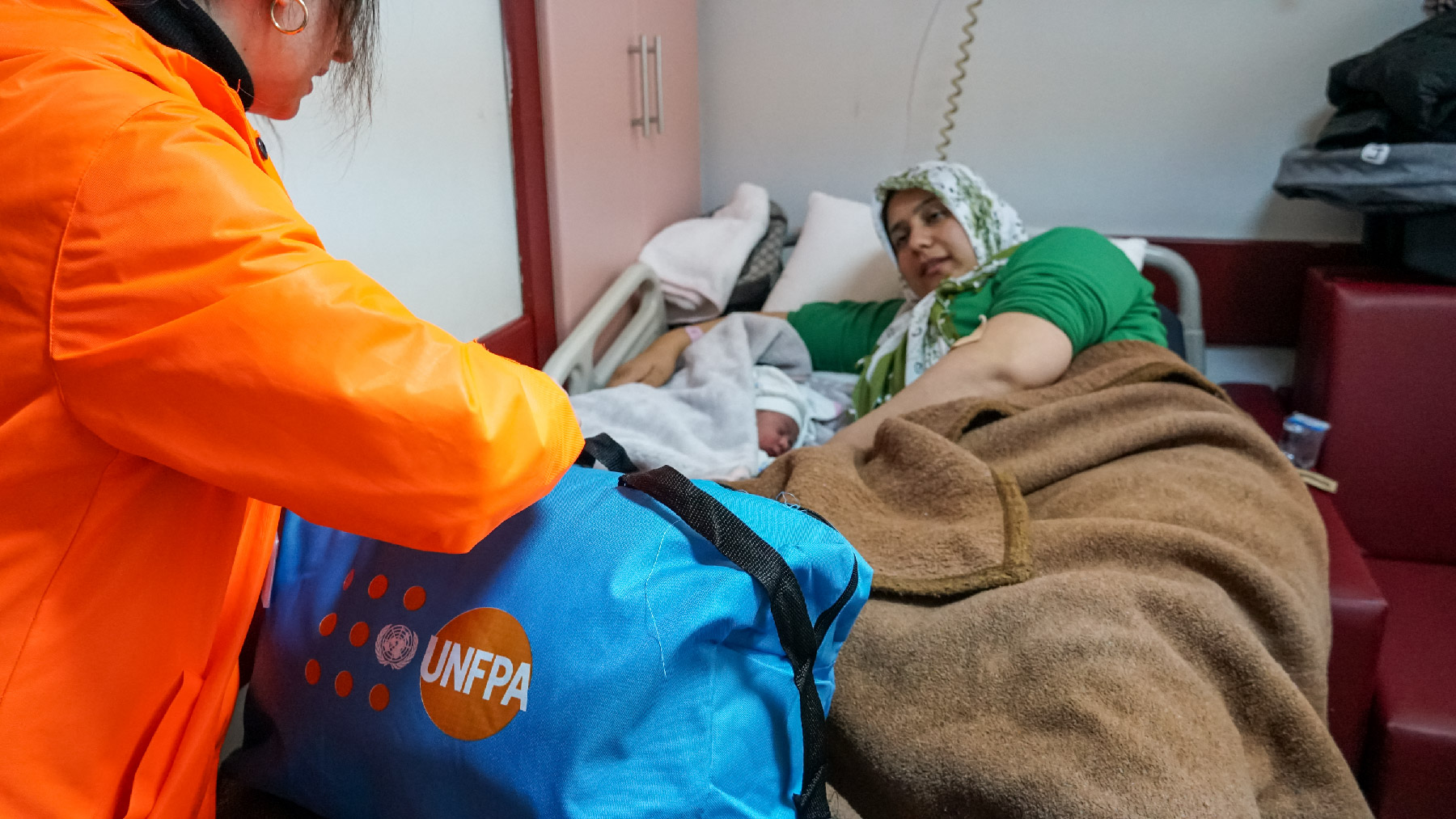
Hatice was 9 months pregnant when the earthquake happened. They threw themselves outside and watched their house collapse. Once they departed Hatay to seek a safe place, the labor had begun on the way. Fortunately, they made it to Diyarbakır where baby Kumsal arrived. Both of them are healthy now. We supported the basic healthcare needs of Hatice and the baby Kumsal with our maternal health kit.
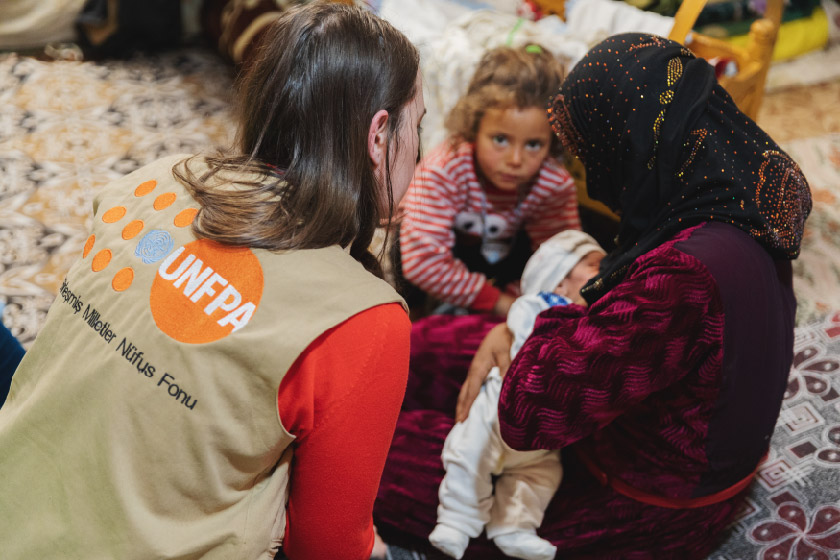
Sara was 7 months pregnant on February 6th. While fleeing from the earthquake, she fell on the stairs and her water broke. She gave birth prematurely a few days later. Fortunately, both Sara and her baby are healthy. They live in a tent they set up with their means, with a few pieces of furniture they brought from the damaged house with their 4 children. We provided Sara with both the maternity kit and newborn care counseling with our midwife.
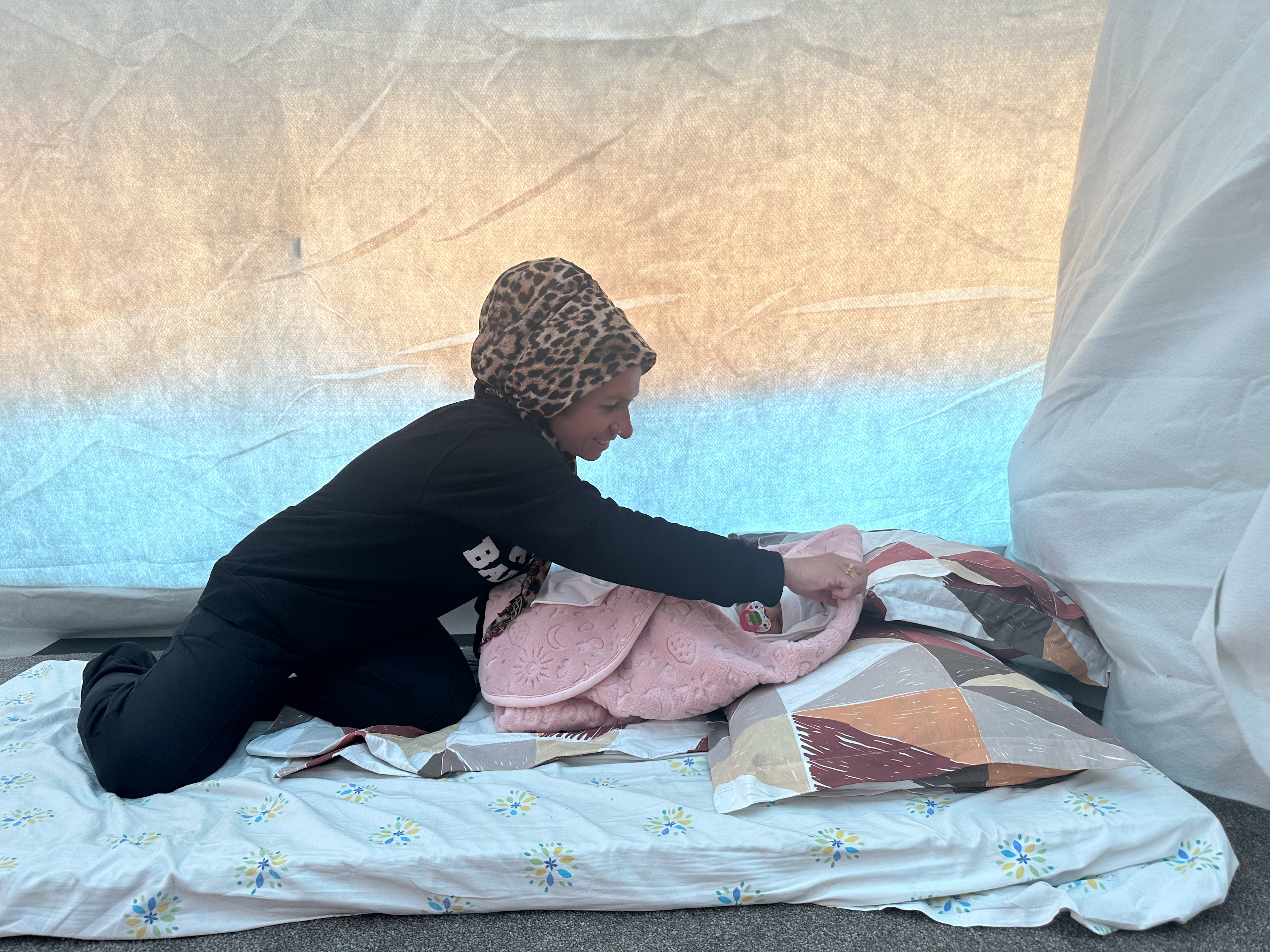
Yonca was 8 months pregnant on the day of the earthquake. When they settled down in the tent city as their house was damaged, her labor cramps began. A few days later, she gave birth to the first baby of the main tent city in Diyarbakır. Both mother and baby are healthy, but Yonca says that they are in need of some basic healthcare products for her baby. “A newborn baby needs to change clothes every day, even several times in a day. And diapers for use. We need many of them,” said Yonca when we visited the tent where they were staying and delivered our maternal health kit.
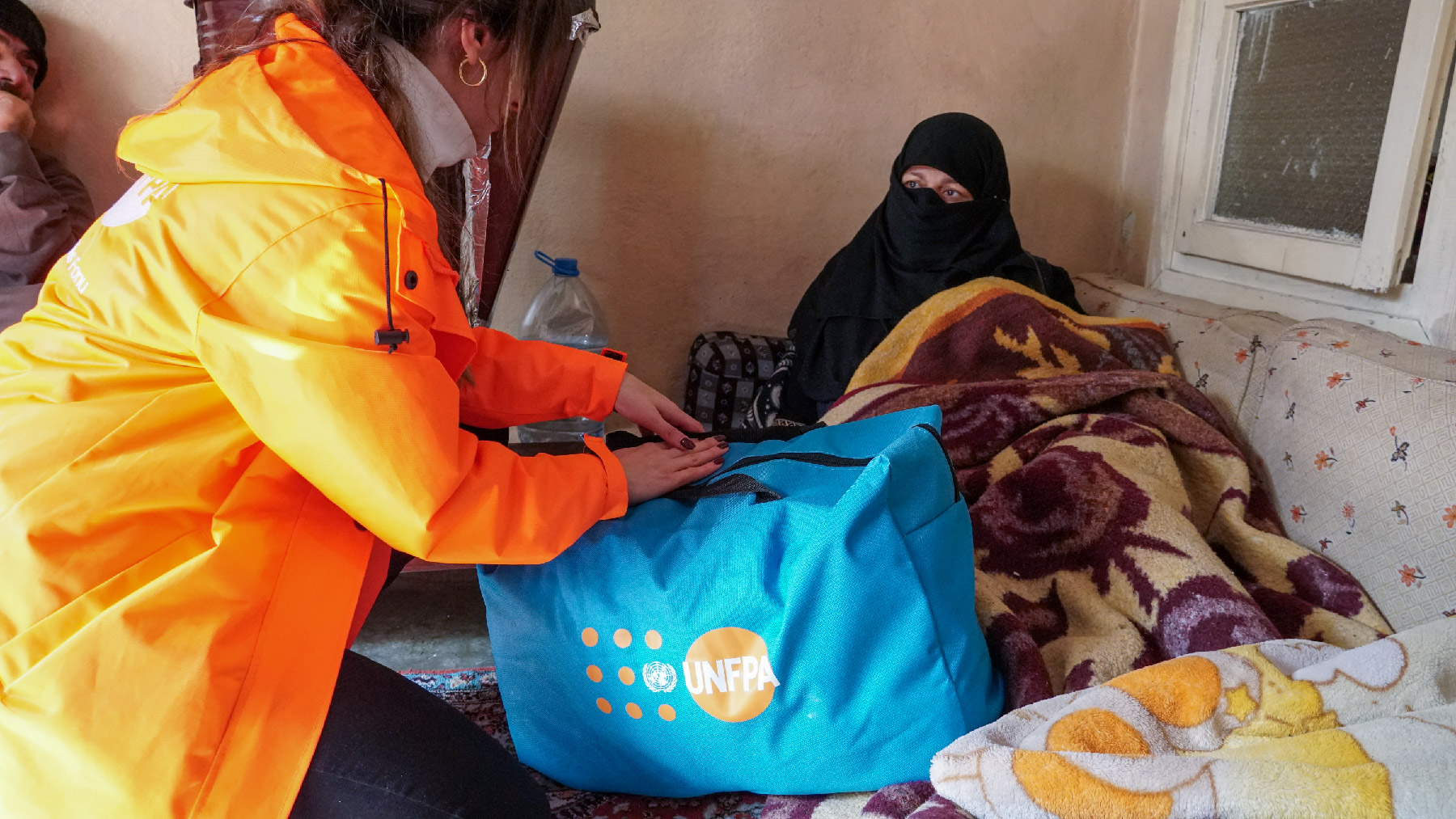
Fatma had an appointment for a c-section on the morning of the earthquake. The earthquake happened 4 hours before the appointment. They ran out and rushed to the hospital, but the hospitals in Adıyaman were also damaged. Fatma gave birth a few days later in Şanlıurfa. However, she faced some complications due to delayed birth and difficult living conditions due to the earthquake. “I have seen war in Syria, but I have not seen anything like this. Thank God we are healthy,” said Fatma when we visited her to give a maternal health kit at a relative’s house. “I had a difficult birth, my baby and I both have needs. This kit will be helpful for them,” she said.
Humanitarian crises further increase the vulnerability of women and girls by making access to basic needs, protection, and health care more difficult. As UNFPA, we have been on the ground since day one with the coordination of public institutions, the financial support of the UN Central Emergency Response Fund (CERF), Ireland, New Zealand, Norway, Sweden, the United Kingdom, the Government of United States along with the private sector, and with the cooperation of our partners; KAMER Foundation, Association for Solidarity with Asylum Seekers and Migrants (SGDD-ASAM), Young Approaches in Health Association (YAHA), Şanlıurfa Metropolitan Municipality, Harran University and Positive Living Association. We continue working to ensure that women, girls, and groups with special needs affected by the earthquake have access to sexual and reproductive health rights and services as well as gender-based violence information and services.
